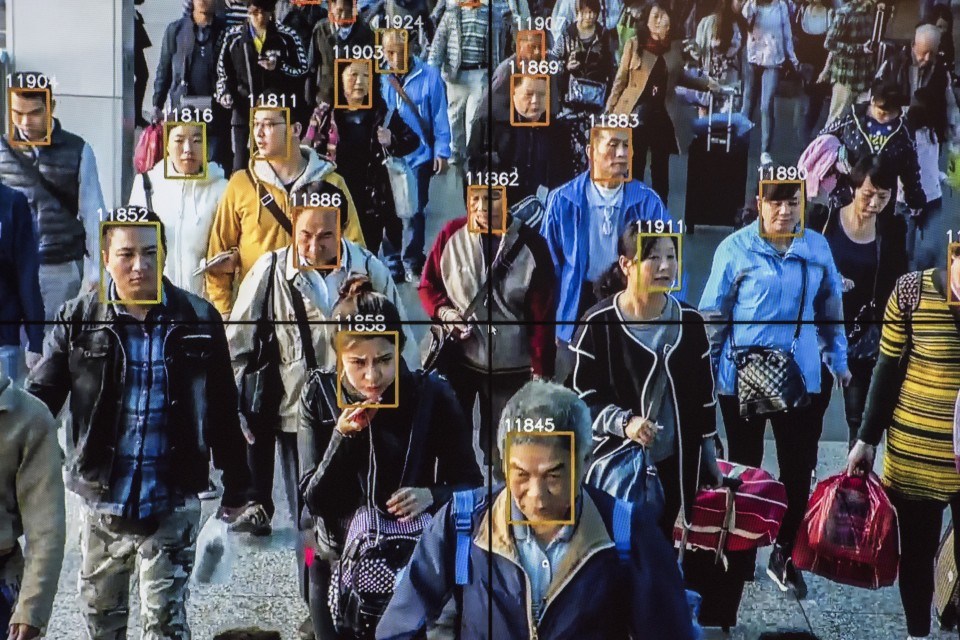Tiffany Li is a resident fellow at Yale Law School’s Information Society Project, where she focuses on privacy and Internet law.
China’s digital privacy practices have sounded alarms in the West for years. Recent headlines about China highlight the growing use of facial recognition surveillance, the rise of the controversial social credit system and the development of other privacy-invasive technologies, including brain-scanning helmets that some employers use to try to evaluate how hard employees are working.
It’s easy to distance ourselves from these accounts, but there’s a reason we should care about privacy in China. Its rapidly advancing technology industries and massive consumer market are already influencing norms around the world. China will likely impact the way privacy is understood and protected.
Take, for example, the recent news that Google secretly decided to reverse its long-held human rights stance and kowtow to Beijing with a censor-approved search engine designed exclusively for the Chinese market. If this comes to fruition, it will be a prime example of Chinese cultural norms influencing the American tech industry and changing what is expected for free speech on the Internet. The solution is twofold:
1. The West and Western tech companies must put more effort into understanding Chinese privacy norms.
To understand privacy in China, we must consider the context of China’s unique culture and history. Philosophically, Chinese culture has traditionally been more communitarian, while American culture values individualism. Privacy in China focuses more on shielding one’s reputation in the community and less on the individual ownership of private information. The traditional translation of “privacy” in Chinese is “yinsi,” which can also mean “shameful secret.” Instead of viewing privacy as a reflection of personal liberty (as in the U.S.), Chinese culture has traditionally understood privacy as more of an instrumental good — valued for objectives like protecting a person from shame.
Another key difference is what Chinese citizens traditionally expect from their government. Historically, China does not have the same legacies of republicanism or democracy, in which citizens expect significant privacy from their government. This is not to say that Chinese people do not care about privacy — they do. But, they value different types of privacy and use different factors to judge the costs and benefits of privacy tradeoffs.
For example, consider the difference between Chinese and American reactions to facial recognition surveillance. In the U.S., facial recognition technology has faced intense backlash, including a recent call from members of Congress to investigate its use in criminal justice. In China, the facial recognition industry is booming, with no equivalent to American privacy laws to stop the industry’s growth. Chinese citizens may be more willing to accept facial recognition technology as an instrumental tool to enforce social norms.
If we are concerned with how privacy norms look in China and how those norms may impact the rest of the world, one thing is clear: Don’t treat China with the same approach as the United States or the E.U. American tech companies have generally entered European markets by force, prioritizing American privacy norms over local privacy expectations. In response, the E.U. has attempted to change global privacy norms through laws and regulations. While the laws aim to protect E.U. citizens, the reach of such laws is global. Companies, including American companies, comply with European laws because they don’t want to lose the European consumer market. But this approach will not work in China.
While China’s population size makes it a tantalizing market, it is well known for its closed Internet ecosystem. Protectionist trade measures stemming from thousands of years of historical isolationism, as well as a recent history of inequitable dealings with the West (still called the “century of humiliation”), have resulted in China creating its own thriving digital technology industry, with homegrown companies that replicate and rival Google, Facebook and the like. Chinese companies do not need the European market, so they do not need to change their practices to align with European privacy laws.
2. We must strengthen the development of global privacy norms.
We need a strong international community that is willing to work together on difficult issues, including digital privacy rights. What is needed to influence the development of privacy norms in China is not American tech exceptionalism or European regulation but rather international, multi-stakeholder efforts that define the global values of privacy. Many of the international efforts we’ve seen so far have excluded non-Western perspectives on privacy. To effectively create and uphold truly global privacy norms, we will need greater international cooperation, through non-governmental organizations like the U.N. as well as through regional, multinational groups like the Asia-Pacific Economic Cooperation (APEC). Effective trade policy can also help to codify privacy norms.
Privacy in China is not a lost cause. In recent years, we have seen China increase its soft power efforts at becoming a leader in the global arena — or at least being seen as one. If China wishes to be taken seriously on the global stage, it too must align to some extent with the shared values and norms of the rest of the world.
As Americans, we must use our voices, our votes and our wallets to advocate for stronger privacy protections, both from companies and from our local, state and federal governments. But we shouldn’t lose sight of the importance of international cooperation in supporting global privacy norms, even if they look different from what we are used to.
This was produced by The WorldPost, a partnership of the Berggruen Institute and The Washington Post.




